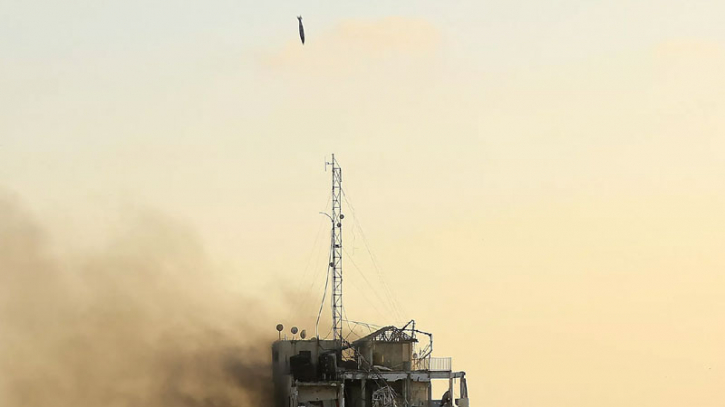US to sell Israel $320mn worth of guided bomb equipment

The US State Department has cleared a $320 million sale of equipment to Israel to improve precision and guidance systems for munitions, according to a letter the department sent to Congress. This follows an earlier $403 million order for similar equipment to convert unguided bombs into more accurate, GPS-guided bombs.
Israel has used the specified kits in its military operations, including recent airstrikes in the Gaza Strip. These strikes have raised concerns due to their impact on the ground, resulting in the loss of approximately 10,000 Palestinian lives, with 40% of the casualties being young children and teenagers.
While these kits are expected to reduce civilian casualties, the recent conflict has highlighted the devastating impact of such munitions, particularly in urban areas. Israel has a significant arsenal of air munitions, including 1,000- and 2,000-pound bombs, which are among the largest used by any military force.
An October 31 airstrike in Gaza's densely populated Jabaliya neighborhood involving 2,000-pound bombs resulted in numerous casualties and injuries, leading to conflicting narratives about the target and its aftermath.
The State Department's approval of the bomb equipment sale coincided with the October 31 attack on Jabaliya. Rafael Advanced Defense Systems, an Israeli arms manufacturer, will pay $320 million for equipment and services related to precision bomb kits. The sale is being facilitated by Rafael USA, an
American company with ties to the Israeli company, based in Maryland.
It's important to note that this sale is being made directly between a foreign company and an American company, bypassing the US government. While the letter is dated October 31 and was sent to various congressional offices, it is not publicly available on congressional websites or the official State Department website.
The Israeli request for authorization to purchase the $320 million in bomb equipment was made earlier this year and had undergone an informal review process with congressional committees, but had not received final approval from the State Department prior to the October 7 attacks, according to a State Department official who worked in the political-military bureau. The earlier contract, worth nearly $403 million, was approved on February 5.
.png)




